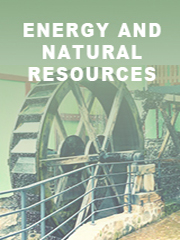Report overview
Battery recycling is the reuse and reprocessing activity of spent batteries that aims to reduce the number of spent batteries being disposed of as municipal solid waste or material waste. Batteries contain several toxic chemicals and heavy metals and disposing them off as trash has raised environmental and health concerns over water pollution and soil contamination.
Lead acid batteries are closed-loop recycled, meaning each part the the old batteries is recycled into a new battery. It is estimated that 98% of all lead acid batteries are recycled. Lead acid batteries either start or power cars, trucks, buses, boats, trains, rapid mass-transit systems, recreational vehicles and electric wheelchairs all over the globe. The car battery also provides a stable electrical supply to a vehicle?s electrical system. Lead acid batteries power electric fork trucks used in warehouses, factories, mines, and ships. They also power the shuttle vehicles in airports, as well as wheelchairs, amusement park shuttles and golf carts. On the road, lead acid batteries power electric law-enforcement vehicles, buses, and very soon mail delivery vans.
This report aims to provide a comprehensive presentation of the global market for Lead Acid Battery Recycling, with both quantitative and qualitative analysis, to help readers develop business/growth strategies, assess the market competitive situation, analyze their position in the current marketplace, and make informed business decisions regarding Lead Acid Battery Recycling. This report contains market size and forecasts of Lead Acid Battery Recycling in global, including the following market information:
Global Lead Acid Battery Recycling Market Revenue, 2018-2023, 2024-2029, ($ millions)
Global top five companies in 2022 (%)
The global Lead Acid Battery Recycling market was valued at US$ million in 2022 and is projected to reach US$ million by 2029, at a CAGR of % during the forecast period. The influence of COVID-19 and the Russia-Ukraine War were considered while estimating market sizes.
The U.S. Market is Estimated at $ Million in 2022, While China is to reach $ Million.
VRLA Lead Acid Battery Segment to Reach $ Million by 2029, with a % CAGR in next six years.
The global key manufacturers of Lead Acid Battery Recycling include Battery Solutions, Call2Recyle, Exide Technologies, Gravita Group, Johnson Controls, EnerSys, Aqua Metals, ECOBAT Technologies and Umicore, etc. in 2022, the global top five players have a share approximately % in terms of revenue.
We surveyed the Lead Acid Battery Recycling companies, and industry experts on this industry, involving the revenue, demand, product type, recent developments and plans, industry trends, drivers, challenges, obstacles, and potential risks.
Total Market by Segment:
Global Lead Acid Battery Recycling Market, by Type, 2018-2023, 2024-2029 ($ millions)
Global Lead Acid Battery Recycling Market Segment Percentages, by Type, 2022 (%)
VRLA Lead Acid Battery
Flooded Lead Acid Battery
Other
Global Lead Acid Battery Recycling Market, by Application, 2018-2023, 2024-2029 ($ millions)
Global Lead Acid Battery Recycling Market Segment Percentages, by Application, 2022 (%)
Automotive
Utilities
Construction
Telecom
Marine
UPS
Others
Global Lead Acid Battery Recycling Market, By Region and Country, 2018-2023, 2024-2029 ($ Millions)
Global Lead Acid Battery Recycling Market Segment Percentages, By Region and Country, 2022 (%)
North America
US
Canada
Mexico
Europe
Germany
France
U.K.
Italy
Russia
Nordic Countries
Benelux
Rest of Europe
Asia
China
Japan
South Korea
Southeast Asia
India
Rest of Asia
South America
Brazil
Argentina
Rest of South America
Middle East & Africa
Turkey
Israel
Saudi Arabia
UAE
Rest of Middle East & Africa
Competitor Analysis
The report also provides analysis of leading market participants including:
Key companies Lead Acid Battery Recycling revenues in global market, 2018-2023 (estimated), ($ millions)
Key companies Lead Acid Battery Recycling revenues share in global market, 2022 (%)
Further, the report presents profiles of competitors in the market, key players include:
Battery Solutions
Call2Recyle
Exide Technologies
Gravita Group
Johnson Controls
EnerSys
Aqua Metals
ECOBAT Technologies
Umicore
SUNLIGHT Recycling
HydroMet
Retriev Technologies
Campine
Gopher Resource
G&P Batteries
Terrapure Environmental
East Penn Manufacturing
RSR Corporation
INMETCO (American Zinc Recycling)
Cleanlites Recycling
Enva
C&D Technologies
Outline of Major Chapters:
Chapter 1: Introduces the definition of Lead Acid Battery Recycling, market overview.
Chapter 2: Global Lead Acid Battery Recycling market size in revenue.
Chapter 3: Detailed analysis of Lead Acid Battery Recycling company competitive landscape, revenue and market share, latest development plan, merger, and acquisition information, etc.
Chapter 4: Provides the analysis of various market segments by type, covering the market size and development potential of each market segment, to help readers find the blue ocean market in different market segments.
Chapter 5: Provides the analysis of various market segments by application, covering the market size and development potential of each market segment, to help readers find the blue ocean market in different downstream markets.
Chapter 6: Sales of Lead Acid Battery Recycling in regional level and country level. It provides a quantitative analysis of the market size and development potential of each region and its main countries and introduces the market development, future development prospects, market space of each country in the world.
Chapter 7: Provides profiles of key players, introducing the basic situation of the main companies in the market in detail, including product sales, revenue, price, gross margin, product introduction, recent development, etc.
Chapter 8: The main points and conclusions of the report.
